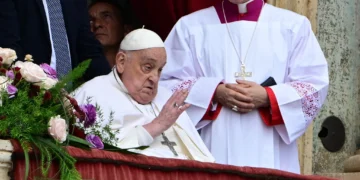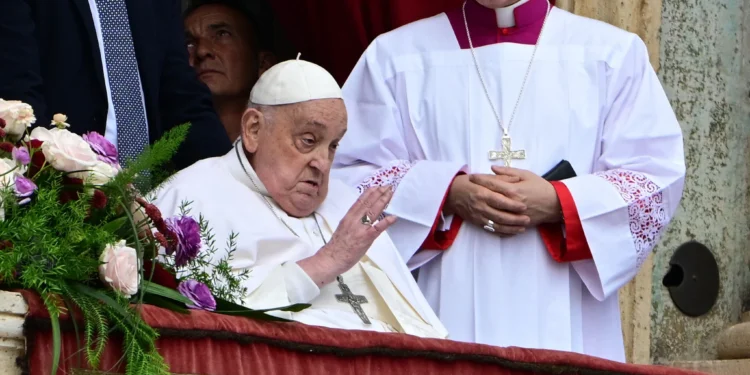Pope Francis, the first Latin American leader of the Roman Catholic Church and spiritual head of nearly 1.4 billion Catholics worldwide, has passed away at the age of 88, the Vatican announced on Monday. His death occurred on Easter Monday, following a prolonged illness.
Cardinal Kevin Farrell, a senior official of the Vatican, shared the news in an emotional statement on the Vatican’s official TV channel:
“Dear brothers and sisters, it is with profound sadness I must announce the death of our Holy Father Francis. At 7:35 this morning, the Bishop of Rome, Francis, returned to the house of the Father. His entire life was dedicated to the service of the Lord and His church.”
Pope Francis had battled a series of health complications in recent years. Most recently, he was hospitalized on February 14 for bronchitis, which later developed into bilateral pneumonia. The Vatican also reported mild signs of kidney failure during this period. However, his condition appeared to improve, and on March 23, he made a brief public appearance from a hospital balcony, offering a thumbs-up to the cheering crowd. He returned to the Vatican shortly after for continued rest and recovery.
Remarkably, just days before his passing, Pope Francis met with U.S. Vice President JD Vance on April 19, and the following day, he appeared at the Easter Sunday service to greet the faithful.
Born Jorge Mario Bergoglio in Buenos Aires, Argentina, Francis was elected pope on March 13, 2013, at the age of 76. He made history as the first Jesuit, the first non-European in over 1,200 years, and the first pontiff from the Americas to lead the Catholic Church.
His papacy began in a period of crisis for the Church, as it faced mounting scrutiny over widespread clerical abuse and internal divisions within the Vatican. Over the next 12 years, Pope Francis led efforts to reform the Church, emphasizing humility, compassion, and openness to modern issues. He became known for advocating social justice, championing the rights of migrants and refugees, addressing climate change, and confronting the global scandal of clerical abuse.
Though his tenure was not without controversy—drawing criticism from both conservatives and progressives—he remained focused on transforming the Church into a more inclusive institution. He approved limited blessings for same-sex couples, appointed women to senior Vatican roles, and held major synods to debate complex issues such as women’s ordination and Church teachings on sexuality.
Pope Francis also restructured the Vatican bureaucracy, authored four major encyclicals, and canonized more than 900 saints. He made 47 international visits to over 65 countries, reaching out to global communities in an effort to bridge divides and promote peace.
In a move reflective of his humility, Pope Francis had previously requested not to be buried in the traditional papal tomb at St. Peter’s Basilica. Instead, he wished to be laid to rest at the Basilica of Santa Maria Maggiore in Rome, breaking with a century-old tradition. He also declined the customary triple-coffin burial, opting instead for a simple wooden and zinc casket.
His passing triggers the centuries-old process of selecting a new pope. A conclave of cardinals will be convened in the coming weeks—typically within 15 to 20 days—to elect his successor. Until then, the governance of the Vatican will be overseen by the camerlengo, currently Cardinal Kevin Farrell.
Pope Francis will be remembered as a leader who, despite immense challenges, sought to bring the Roman Catholic Church closer to the people and to the pressing issues of the modern world.
Also Read: Ward Boy Caught on CCTV Stealing Gold Earrings from Deceased Woman at Shamli Hospital 2025















 Categories
Categories









